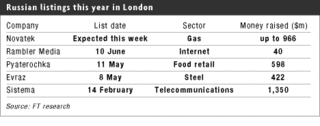
Ukraine/Media/President vs. Press
NY Times: Ukrainian Media Tests Freedom Boundaries
KIEV, Ukraine (AP) "Ukrainian media are testing the boundaries of their newly won freedoms with hard-hitting exposes on the allegedly extravagant lifestyle of President Viktor Yushchenko's son, sparking a feud with the president over what is fair game in this former Soviet republic."
"Yushchenko claims the press went too far in attacking his teenage son, while journalists are now questioning the president's commitment to freedom of the press."
''' This is a test of what kind of relationship we are going to have in Ukraine between the government and the press, and it is difficult to say how it is going to develop,' '' said Dmytro Krikun, development director at Internews, a nonprofit group that aids the formation of a free press.


































